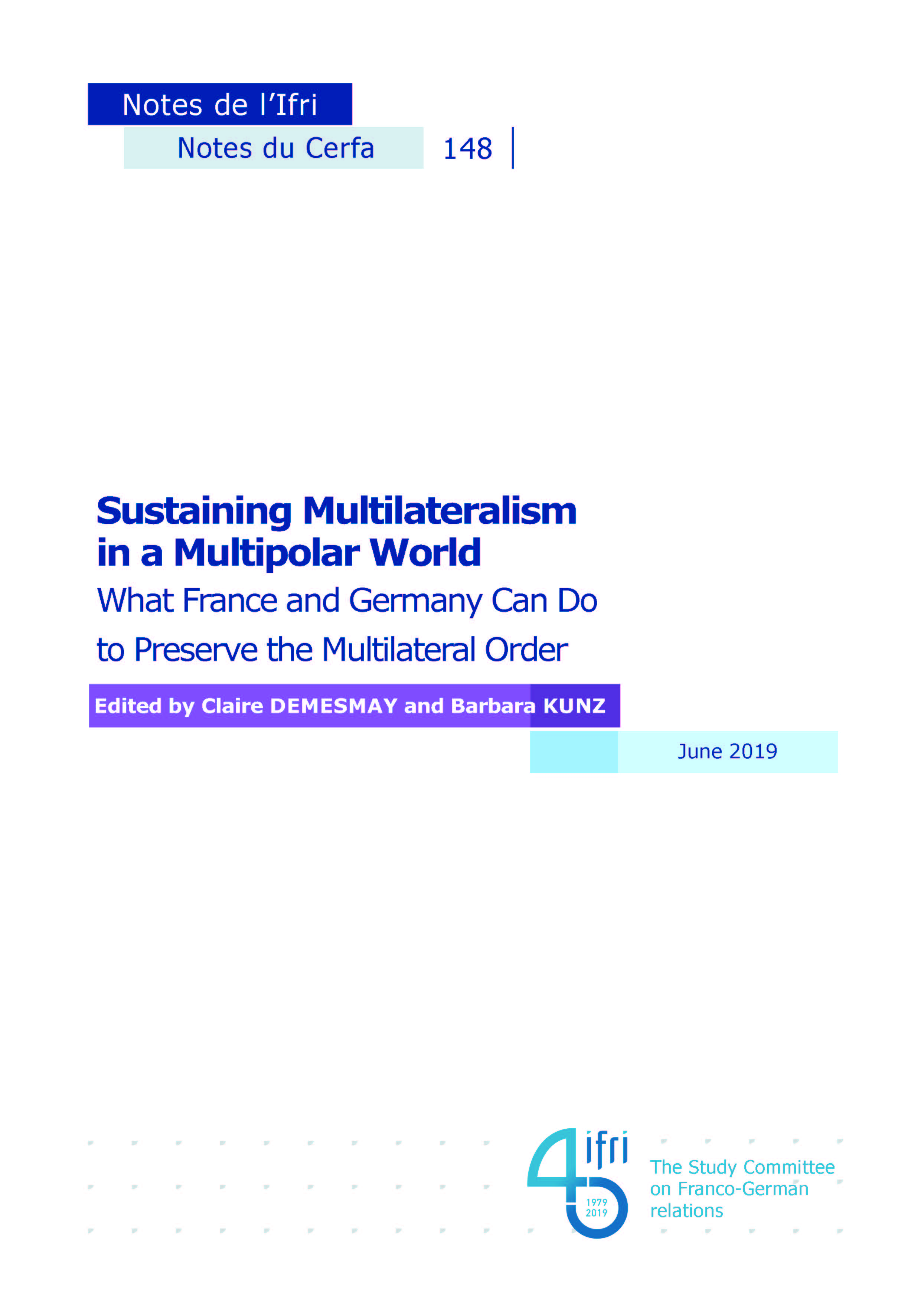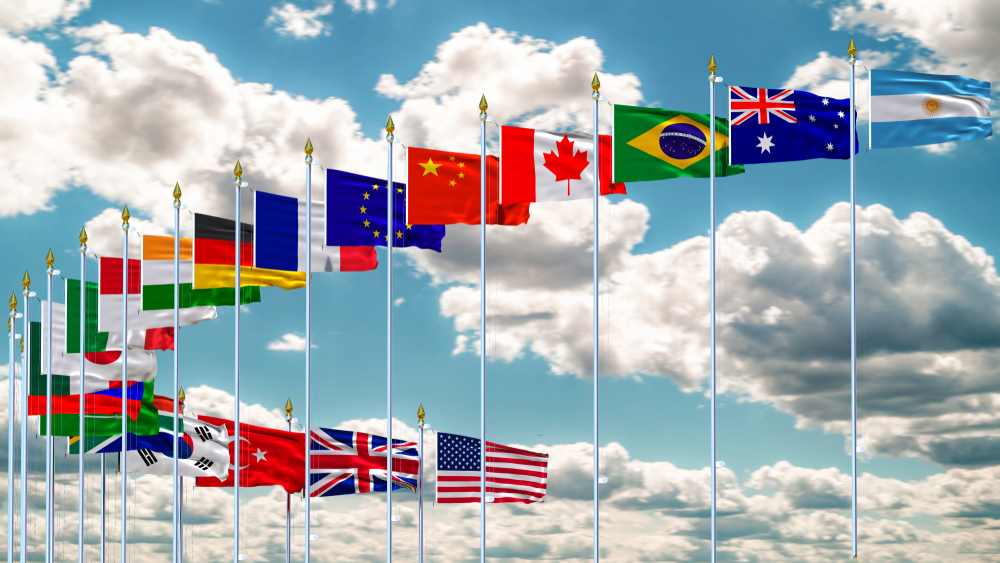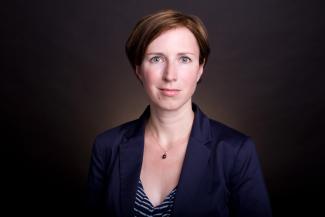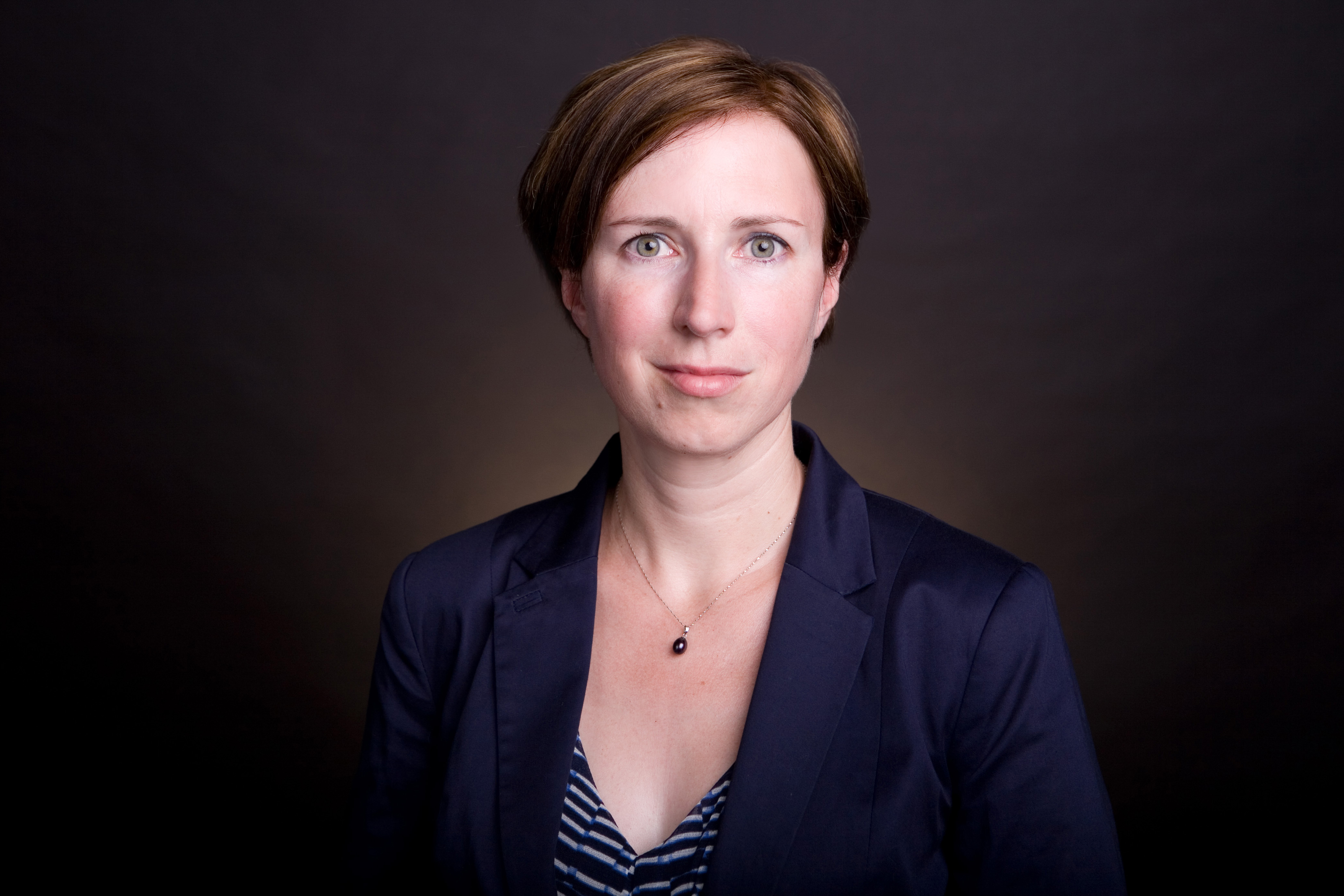Sustaining Multilateralism in a Multipolar World. What France and Germany Can Do to Preserve the Multilateral Order

While international multilateralism is under strain, it is vital for France and Germany to defend it, since it is the most appropriate system for preserving their interests – particularly in terms of welfare, security, prosperity and environmental protection. Against this backdrop, three political fields offer opportunities for joint initiatives: trade, conventional arms control and climate change.

On these issues, both governments share not only concerns, but also common positions. However, when it comes to concrete measures, they often face differences of interest that are difficult to overcome. In addition, they must also engage like-minded partners on a case-by-case basis, not only inside but also outside the EU.
This publication is composed of three case studies, exploring potential for action by Paris and Berlin:
Chapter 1 | International trade
Elvire Fabry (Jacques Delors Institute, Paris)
Claudia Schmucker (German Council on Foreign Relations - DGAP, Berlin)
Chapter 2 | Conventional Arms Control
Barbara Kunz (Study Committee for French-German Relations - Cerfa at Ifri, Paris)
Eric-André Martin (Ifri, Paris)
Wolfgang Richter (German Institute for International and Security Affairs - SWP, Berlin)
Chapter 3 | Climate
Carole Mathieu (Center for Energy at Ifri, Paris)
This paper was edited by Claire DEMESMAY (German Council on Foreign Relations - DGAP, Berlin) and Barbara KUNZ (Cerfa, Ifri, Paris).
Download the full analysis
This page contains only a summary of our work. If you would like to have access to all the information from our research on the subject, you can download the full version in PDF format.
Sustaining Multilateralism in a Multipolar World. What France and Germany Can Do to Preserve the Multilateral Order
Related centers and programs
Discover our other research centers and programsFind out more
Discover all our analysesThe Franco-German Brigade and the Revival of European Defense
One thing has been clear since Donald Trump's return to the White House: the very existence of the European unification project is threatened. Unless it develops a sovereign defense policy to counter the war in Ukraine and the weakening of American security guarantees, the European Union will continue to see its internal cohesion and external attractiveness wane.
Friedrich Merz and the Zeitenwende 2.0. A “New Era” for Transatlantic Relations?
On February 23, 2025, almost 60 million voters were called upon to elect a new Bundestag. These elections will also give rise to a new government in Europe's largest economy.
After the Elections: Germany in Search of Shaken Stability?
With a voter turnout of 82.5%, Germany recorded its highest participation since 1987—an increase of 6.1 percentage points compared to 2021. As in the previous election, the high turnout particularly benefited the Alternative for Germany (AfD), which was able to mobilize many former non-voters. Many voters sought to punish the outgoing government with their ballots, as its approval rating had dropped to just 14% before the coalition broke apart in November 2024. Germany is now very likely heading toward a grand coalition between the CDU/CSU and the SPD, with exploratory talks having begun on February 28.
The German Greens as an Alliance Party: The End of an Illusion?
At the Wiesbaden Congress in November 2024, Robert Habeck, currently Minister for the Economy and Climate, was nominated as the Green Party’s candidate for the Chancellorship in the early parliamentary elections on February 23, 2025. The party, founded 45 years ago, is now firmly established in the German political landscape. Wishing to turn the page on an unloved ‘‘traffic light’’ coalition, the party is banking on a personal campaign and an optimistic discourse based on the energy transition and social justice.











